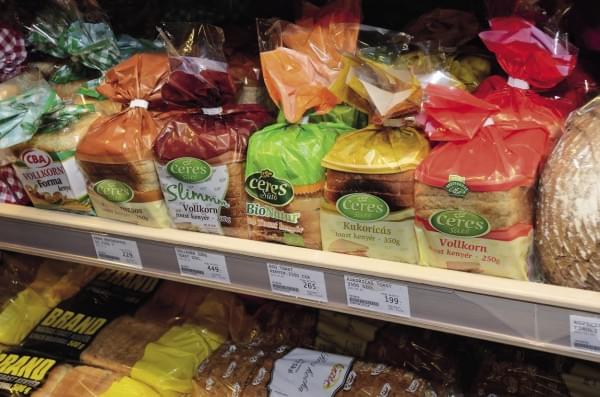Tolerated specialists
Demand is increasing for functional food products with a special composition – the main buyers of these groceries are people suffering from some kind of food intolerance and health conscious consumers. According to a Nielsen survey published in early 2015, 8 from 10 Hungarian consumers pay at least a little attention to consume food that helps them stay healthy. 51 percent said it is ‘very important’ for them if a product is made from fruit or vegetable. Consumers who say that eating healthy food is important are willing to pay more for these products, however, not to the same extent: 40 percent are ‘moderately ready’ to pay more for healthy groceries, while 9-29 percent said they are ‘very much ready’ to do the same: the 9 percent refers to caffeine-free drinks and the 29 percent is about food products made from fruit or vegetable. All over the world consumers are looking for those functional food products which can help them stay healthy or prevent illnesses. In 60 countries 36 percent of survey participants said fibres are ‘very important’, 3 from 10 people said the same about proteins, wholemeal cereals and added calcium, vitamins and minerals. According to Nestlé dietitian Bernadett Kiss-Tóth, Euromonitor data shows that Hungary’s fortified/functional food market expands by 2-3 percent every year. Per capita sales of such products are twice as big in Germany and four times bigger in the UK. Gluten-free products constitute the biggest segment, followed by special baby food and lactose-free products. Demand is growing for food satisfying special dietary needs and for fortified products, such as breakfast cereals, vegetable-based milk, margarine, etc. The dietitian thinks that the consumers of today often feel that it is difficult to maintain a balanced diet because of the rapid pace of life, so they try to buy special groceries to stay fit. It is very important to make sure that in stores consumers can find the product they need: for instance it is best if gluten-free cereals are displayed both among ordinary cereals and in the gluten-free product section. Last year Nestlé made 10 commitments in the areas of innovation, consumer information and education, by this contributing to making people healthier. It is a good sign that already in 2013 consumers purchased more than 200 million portions of food fortified with minerals and vitamins, e.g. Nesquik chocolate powder, Nestlé breakfast cereals. In addition to this, between 2011 and 2013 the company increased breakfast cereals’ calcium content by 73 percent on average. In 2014 Nestlé fortified Nesquik chocolate powder and all children’s breakfast cereals with vitamin D. Dániel Forrás, the brand manager of Ceres Zrt. told Trade magazin that consumer and retailer feedback show that demand is growing for special-composition baked goods, especially for products made from wholemeal flour. The brand manager added that with functional food products it is easier to reach the target group. He informed that they recently put an E-free product line on the market. These target health conscious consumers but the company would like to popularise them among ‘ordinary’ consumers too. Ceres Zrt. plans to expand its product portfolio with wholemeal, low-carbohydrate and gluten-free products. Urbán and Urbán Kft. offers diabetic products for people suffering from food intolerance – we learned from sales director Csaba Csúvár. They started manufacturing two types of filled wafers and a coated one at the end of 2012. These products are available at affordable prices and taste so good that those consumers who don’t suffer from diabetes can also enjoy them. Just recently the company launched two new products: 160g Diabetic Mini Vanilla Rings and 180g Diabetic Biscuits. Angéla Fekete, the head of Fodorostya’s diabetic product division talked to us about how the number of people living with food tolerance is increasing. Luckily stores pay attention now to create a special section for products that satisfy the needs of these consumers. The company’s diabetic wafers are manufactured manually and they are available in modern-design packaging. Ms Fekete reckons there is great potential in this market segment. At the moment the company is busy developing several new products.
Related news
Related news
High-value shopping basket and more conscious shoppers: growing demand for domestic and healthy products
🎧 Hallgasd a cikket: Lejátszás Szünet Folytatás Leállítás Nyelv: Auto…
Read more >






